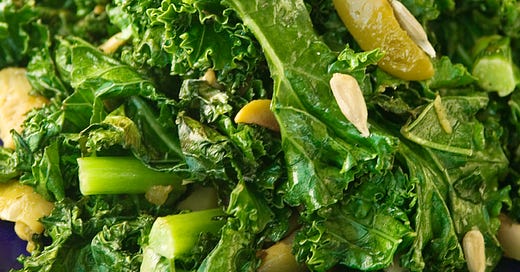Multivitamins, Less Oxygen, and Mediterranean Diet
The top longevity studies to implement into your life.
Age and Prosper is a reader supported publication created for anyone looking for healthy longevity. If you enjoy it, please consider supporting it financially for $5 a month (and/or sharing it). Becoming a paying subscriber supports us in producing this newsletter and bringing you wisdom to help you live a longer and healthier life.
So far, Age and Prosper has 1,500 subscribers and counting! This week we want to try a different format and instead of providing a single theme, we are going to focus on the popular science based longevity studies from the past few week.
We want to hear from you!
Which do you prefer, the theme based newsletters on longevity or the aggregate based newsletters showcasing the current scientific trends from recent news? What is more beneficial to you? Or maybe you like both and want variation. Please comment in today’s newsletter or email us at info@tomsandersphoto.com.
New Research on the Mediterranean Diet
A new Stanford Medicine study reveals that those who consume a Mediterranean diet that is high in olive oil and nuts usually live longer than those who consume a diet made up mostly of processed foods, meat, and dairy. While you may already have this knowledge on the Mediterranean diet, the new research showcases why this diet is advantageous at the cellular level.
Oleic acid, one of the fats found in the Mediterranean diet, was discovered by researchers to be capable of increasing the amount of two important organelles in cells, while simultaneously protecting them from oxidative damage.
Low Oxygen Environments May Increase Lifespan
Harvard Medical School scientists reported in a new study that when a strain of mice with short life spans were placed in an environment with low oxygen levels akin to a Mount Everest base camp, they defied expectations and lived 50 percent longer than expected. The theory is that less oxygen reduces cellular damage and stimulates cells to clear out and recycle damaged components more efficiently, thereby slowing down the aging process.
One suggestion we were thinking about how to incorporate low oxygen environments in a natural and safe way without moving to the mountains is Wim Hof’s breathing method. In the breathing exercise you do 4 rounds 30 rapid inhalations and exhalations and then hold your breath for as long as you can after each round of 30 breaths. The breathing exercise both increases and decreases oxygen levels.
Multivitamins Improve Memories in Older Adults
For this study at New York’s Columbia University and Brigham and Women’s Hospital, a total of 3,500 participants (mostly comprised of non-Hispanic whites aged 60 or higher) were randomly assigned to either take a daily multivitamin supplement or a placebo for three years. After the completion of each year, they conducted online cognitive assessments at home to measure the memory performance of the hippocampus, an area of the brain that experiences detriment due to the progression of age.
The results showed that after the first year, participants who had taken the multivitamin displayed improved memory in comparison to those who had taken the placebo. Over the length of the 3-year study, this strength was maintained – scientists estimated that it provided the same effects of an estimated 3 years of age-related decline in memory for those that took the placebo.
We feel a little bad for the group that was taking the placebo!
Please forward our newsletter to friends, family members, co-workers, your butcher, the mailman, old flames, and strangers! We want to help all of you to have healthy longevity.
Until next week, Age and Prosper!






